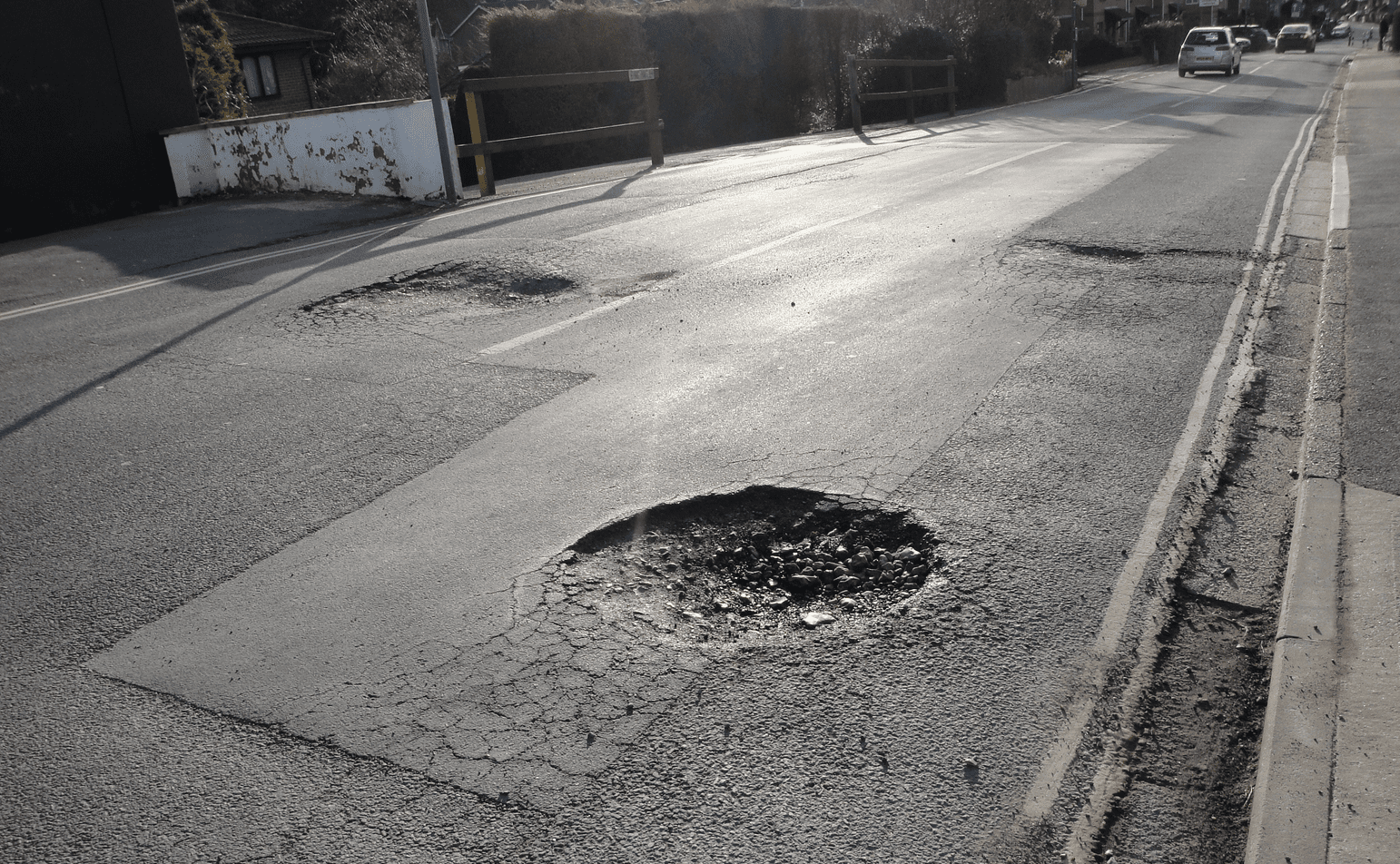Potholes in Philadelphia
Vehicle owners are often curious whether damage to their vehicles and even injury claims from running over a pothole is actionable. In the event that a driver hits a pothole, the damage can be costly, sometimes thousands of dollars. Common vehicle damage by potholes includes damaged tires, wheels, dislodged struts, and even broken suspension. The question most drivers have is whether the city or state can be sued for damages in this situation. Although it is possible, it is generally unlikely and only in specific circumstances.
How Pennsylvania is Protected from Lawsuits Over Potholes
In the state of Pennsylvania, there is a legal doctrine called “sovereign immunity”. “Sovereign immunity” refers to ancient English laws that protected the royal government from lawsuits. This type of law was adopted In Pennsylvania and is frequently used to defend against damage and injury claims resulting from potholes or poorly maintained streets, as it provides immunity from civil liability. Because of this, courts in Pennsylvania are likely to throw out a case based on sovereign immunity. Despite these laws generally absolving the state of any liability, there are still certain ways to successfully use at the city level.
Situations Where Philadelphia Might be Liable for Pothole Damage
For a city like Philadelphia, to be liable for pothole damage, there are a number of circumstances that must happen. First, the offending road must be a city street, not a state road, as sovereign immunity laws prevent the state of Pennsylvania from compensating drivers. They also must have been put on notice of the pothole or defect in the road. What this means is that a driver or pedestrian must have already made note of the pothole and reported it to the government agency responsible for maintaining the road. This is called actual notice, and a lawsuit can result from the city failing to repair the defect after being notified.
Another type of legal notice that can also be successfully used in the event of damage or injury is referred to as constructive notice. This kind of notice does not involve having alerted the city or state beforehand, instead, it is used to suggest that the pothole or damaged section of pavement was in such a damaged state that the city should have known about and fixed the problem. Though this may be useful on busier roads with more commuters, it is likely that it will be harder to argue than a claim with actual notice of the defect.
Finally, if you are a passenger in a car that hits a pothole and the car loses control, causing you to receive an injury, then you may have a claim. Although you would likely not be able to sue the city or state, you could potentially have a claim against the driver for not proceeding in a cautious manner. Much like the driver looking out for other cars on the roadway, it is the driver’s responsibility to be wary of dangers in the roadway.
What Can I do If I Think I Have a Claim After Hitting a Pothole?
For those looking to submit a claim over damage or injury from a pothole or poorly maintained road, drivers are able to report these directly to the city of Philadelphia. Through a claim form, the city gathers information regarding the incident to then further investigates the claim. Along with basic information about the claimant, the form asks for specific information about the incident, damages, and injuries as a result of the defect, witness information, as well as the estimated cost of repair (per a licensed mechanic) or the length and cost of medical treatment. As well as a claim through the city, drivers should also ensure that a claim is filed through their insurance company, as most pothole damage is covered by collision coverage. It’s important to remember to file a police report immediately after the incident, along with both other claims, which should help the claim process receive approval. With luck, an approved claim by the city of Philadelphia will cover the cost of any insurance deductibles tied to damages from the incident.

Stuart A. Carpey, who has been practicing as an attorney since 1987, focuses his practice on complex civil litigation which includes representing injured individuals in a vast array of personal injury cases.

